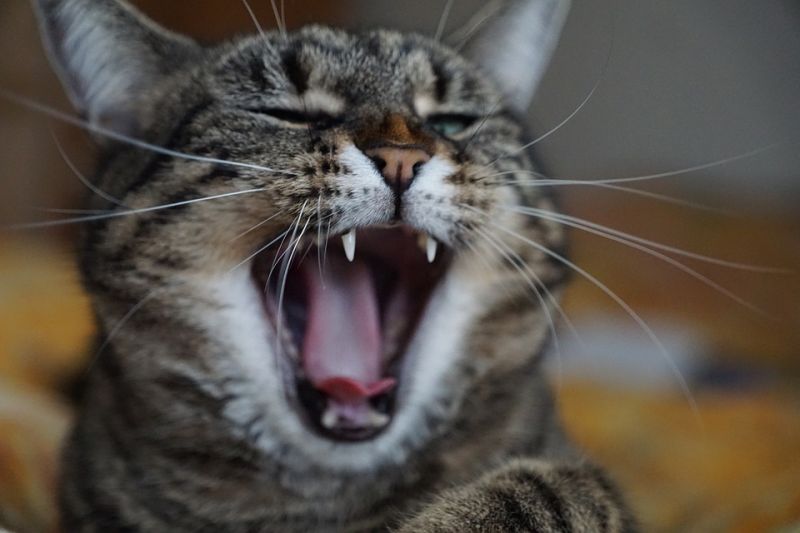Aggressive cat can attack, scratch and bite, and this behavior is difficult to predict. Indeed, many owners do not understand the causes of sudden aggression. But they always are. Let's see what leads to aggressive cat behavior.
 Causes of aggression in cats
Causes of aggression in cats
To solve the problem, as a rule, it is enough to remove the cause of aggression. Therefore, in the first place, it is important to understand what drives a pet.
Hormones. During puberty (at 7-12 months), hormonal changes occur in the body. Therefore, during this period it is better to castrate / sterilize the animal, if you do not plan to continue its genus.
Pain and discomfort. If something hurts the pet, then it works self-defense. The body is trying to survive, so it “fights”. Any wound, injury or illness provokes aggression.
Improper nutrition. You may be surprised, but poor-quality and unbalanced food contributes to irritation and the occurrence of aggression.
The struggle for territory. If at least two mustachioed pets live in the same house, then they can begin to quarrel. Then often people fall under a hot hand (more precisely a paw).
Great fear. A cat can be afraid of anything: noise and rustling, a loud shot (for example, the sound of firecrackers and fireworks), sudden movements, strangers, unfamiliar smells and objects. Usually at such a moment he not only hisses and rushes, but also holds his ears, seeks refuge where he will be able to hide.
A game. If the cat suddenly scratches and bites during the game, then this is a normal manifestation of species-typical behavior. So this reason should not be completely eradicated. A game is an imitation of hunting. To allow the animal to splash out the accumulated energy and realize the hunting instinct, stock up on toys, offer to chase balls and mice.
 What to do if a cat becomes aggressive
What to do if a cat becomes aggressive

When you understand why the cat has become aggressive, start working on a specific reason.
Hormonal bursts are treated by castration / sterilization or hormone-based drugs. Knitting also helps.
If the pet is sick, it most often scratches and bites at the very moment when someone touches the sore spot. To determine the localization of pain, carefully monitor the reaction of the animal to any stimuli. Then go to the veterinarian, tell us in detail what signs you noticed, and follow the prescribed treatment regimen.
If the matter is poor-quality food, consult your veterinarian nutritionist and find out which foods are not suitable for your cat. The aggression is likely to disappear if you start giving super premium class food or balanced natural foods (at least 75% meat, as well as vegetables, dairy products, eggs, greens).
To make friends of your rival relatives, provide each of them with their own bowls, toilets, toys, houses. Most conflicts arise precisely because of the struggle for resources. If the feud is strong, at first keep the pets in different rooms. When they calm down, try to reconcile them in neutral territory.
To eliminate fear, it is necessary to gradually accustom the four-legged friend to the source of what he fears. So, if the cat is aggressive towards the child, it is likely that the mustachioed simply sees danger in it. Young children often make noise, unknowingly cause pain (pull by the tail). Explain to the baby that animals should be gentle, unobtrusive and calm.
In order for the cat to develop a positive association with the child, ask the child to feed the pet more often from his hands, play with him, for example, with a toy mouse. Do not be afraid of loud sounds and strangers are also taught using delicious food. Give a treat every time the pet remains calm in the presence of objects of fear.
Begin exercises with small stimuli. Hit with a spoon on an iron bowl far from the animal and give a treat if fright has not been demonstrated. Then gradually reduce the distance and feed when calm.
Often, it is wild cats that are aggressive. Anger will certainly decrease if you become better at taking care of your four-legged friend. Give him enough attention, affection. And to calm you down, keep calm, allow yourself to escape from danger or an annoying child in a separate room and give a mild sedative of plant origin, such as Motherwort Forte, Leonurus.
 Select language
Select language 





.jpg)
.jpg)
.jpg)
.png)
